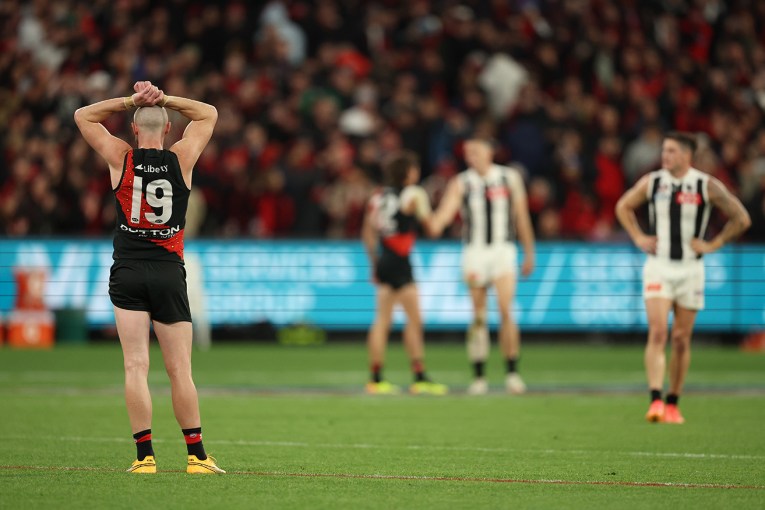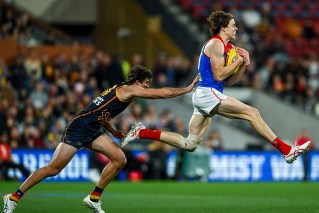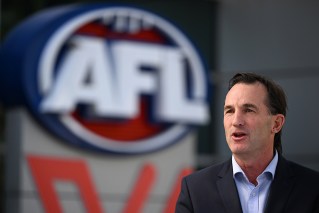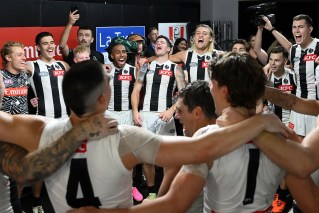Six-week ban for unregistered woman who played in men’s football match
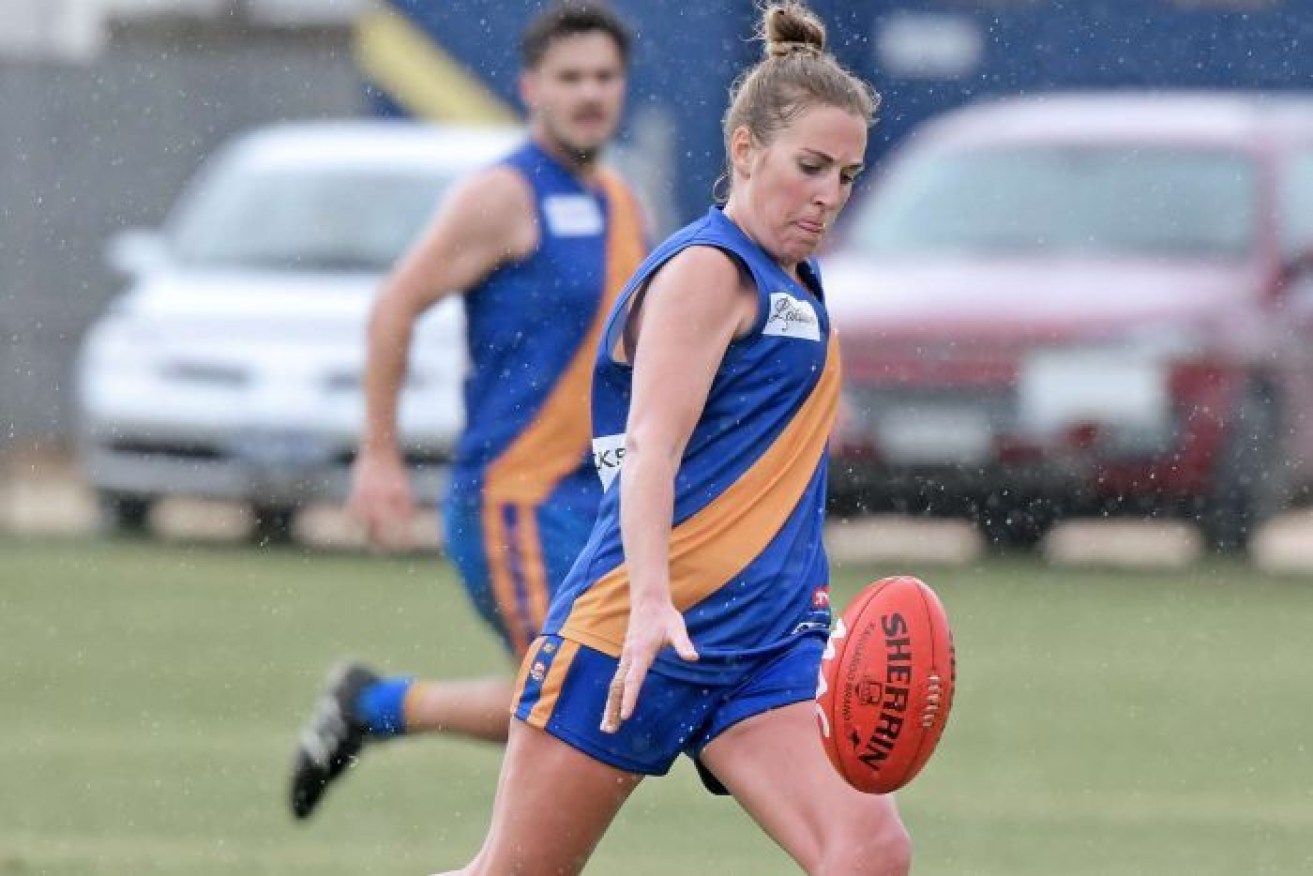
Casey McElroy in action for the Padthaway Football Club men's reserve team. Photo: ABC
South Australia’s Minister for Sport has joined a chorus of criticism against a six-week ban handed to a female footballer after she played unregistered in a country men’s league match.
Casey McElroy will miss the first six games of next year’s Limestone Coast Women’s Football League season, under the suspension imposed by the South Australian National Football League.
The ban could effectively rule her out for most of the season, given there were only eight rounds this year.
She has also been prevented from playing for Murray South East in the women’s country championships next month.
A fortnight ago, McElroy played for the Padthaway Lions men’s reserves team without being registered, a requirement of football regulations.
The Kowree-Naracoorte-Tatiara Football League fined the club $2000, half of which was suspended.
However, the SANFL imposed the extra penalty on McElroy after reviewing the case, and said it was a serious breach of regulations that exposed her, her teammates and the opposition to insurance risk.
The decision has been deeply divisive, with some defending it and others, including South Australian sports star Jenny Williams, condemning it as an overreaction.
“I can’t quite be sure why anyone would get six weeks for this. I think they’re making an example,” Williams told ABC Radio Adelaide.
“Surely what they should do is actually say ‘we hadn’t even thought this might happen’.”

Casey McElroy with her Kybybolite Tigers, celebrating last year’s premiership. Photo: ABC
Ms Williams said she was prepared to contribute money to cover the fine handed down, and SA Minister for Sport Corey Wingard agreed that the ban was excessive.
“I think the six-week ban for the individual, for Casey, was probably a little bit harsh,” he said.
“[Getting] numbers in country footy is tough and it’s great to have more and more women playing.”
Mr Wingard – who was a sports journalist before he entered politics – said he could understand there was an insurance risk, but said there was a need for regulations to be reviewed in light of the case.
“It [is] something that needs to be relooked at, having more women playing and playing with the men if they feel comfortable doing so,” he said.
Former test cricketer Stuart MacGill also expressed outrage, tweeting that he disagreed with the ban “for many reasons”.
MacGill lambasted the league for “using insurance risk as an explanation of why Casey should be banned”.
Player knew of breach in advance, SANFL says
McElroy yesterday told the ABC that she was “devastated” by the outcome and now had the choice of accepting the ban, or having it referred to an independent tribunal.
The SANFL said McElroy was made aware of the relevant policies and regulations before the breach occurred, but she had still opted to play.
In a statement, the league said the Padthaway reserves had 18 other players available to play on the day of the breach.
“The legitimate registration of players and their eligibility to play is paramount to the integrity of all Australian football competitions,” SANFL football general manager Adam Kelly said yesterday.
Women and girls aged 14 and over are not allowed to play in mixed-gender competitions under the Australian Football Match Policy.
Jenny Williams – who was the AFL’s 2003 Woman of the Year, represented South Australia in several sports and is also the daughter of South Australian footballing legend Fos Williams – said she could understand the fine but not the ban.
“This is a sad situation and probably the fine should stand – and I was actually prepared to put a bit of money into that too – because I get where everyone’s coming from,” she said.
“I think it was coming from a good place. They’re trying to make an example of her so people don’t do this again, but you can do that without giving her the six-week penalty.”
She said it was a routine part of country sport for boys to play against men.
“In the country, having lived there for a while, one of the things I know is sometimes there’s reaping or heading or something going on and half the footy team can’t make it,” she said.
“Now I see junior boys who are 14 and 15 often filling in for the senior men’s teams.
“Certainly, having looked at the size Casey is, she’s bigger and stronger than most of the junior boys who fill in.”
Ms Williams said it was time to revisit the rules and regulations, because of the “gender debate”.
“They call it the women’s competition but I’ve never heard the other one called the men’s football competition,” she said.
“It’s usually just called football.”
